Israel murdered a family of bakers, but their recipe lives on
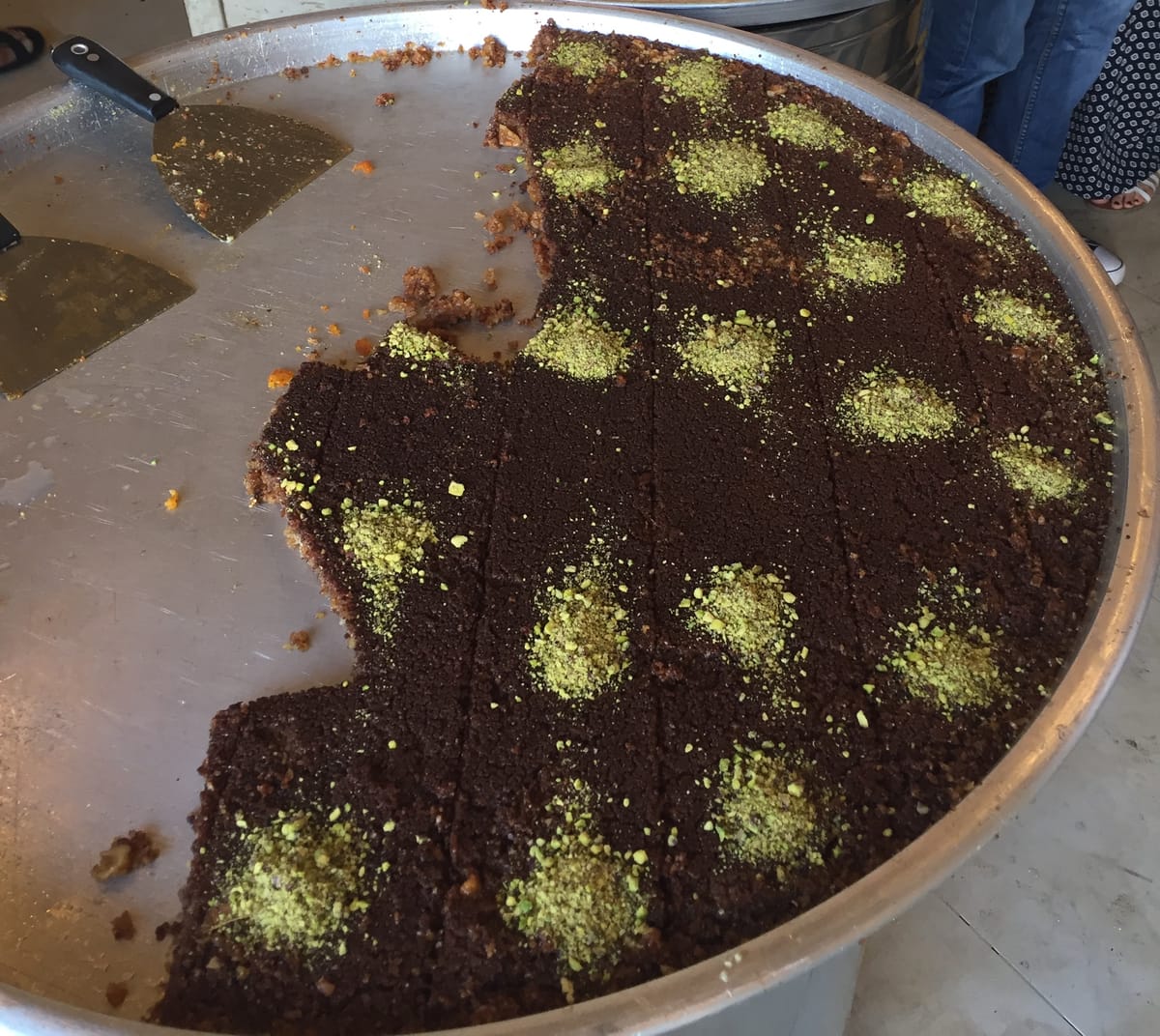
On most of my trips to Gaza, a common treat we enjoyed was Gazan knafeh, كنافة عربية, knafah arabiya. The typical image that comes to mind when thinking of knafeh is the cheesy kind found in Nablus. In Gaza, though, there is a special kind that can't be found anywhere else.
Unlike Nabulsi knafeh, Gazan knafeh is full of walnuts, nutmeg, and cinnamon, but notably, no cheese. It is nutty, hearty, and indescribably delicious. It is incredibly filling and pairs perfectly with coffee; a local delicacy that I wish everyone could try.
I would always look forward to having some at one of the most well known and famous knafeh shops in Gaza: Abu Al Saoud, also known as Saqallah's sweet shop.
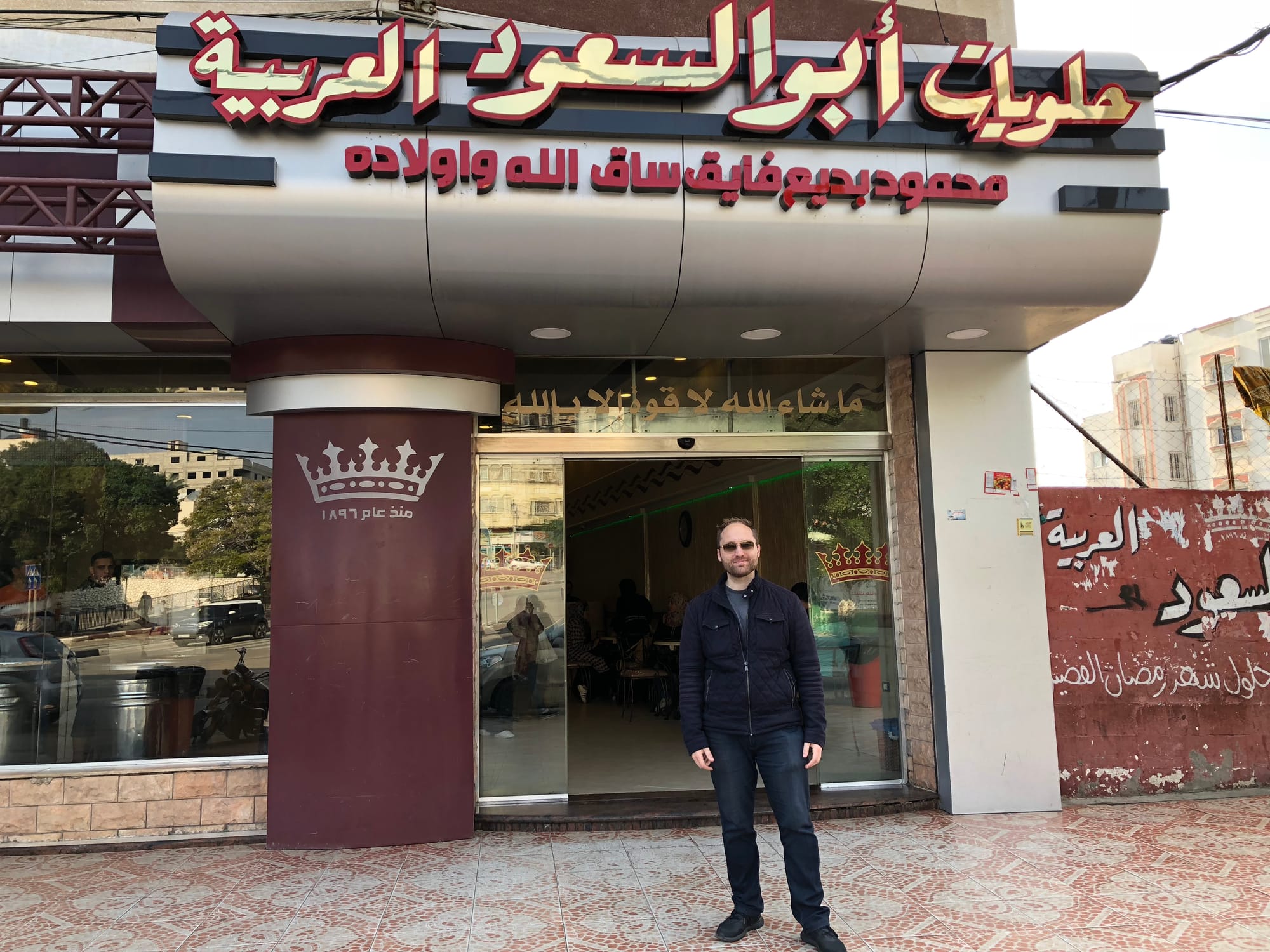
Before the on-going genocide, everyday Palestinians in Gaza suffered immensely from Israel's blockade and occupation. Their suffering is extremely well documented. They lived in a place where the number of calories allowed entry through the blockade per human being are computed like a math equation. Israel often adjusts the area of the Gazan sea where fishing is allowed which affects how much and what kinds of fish are available. It is clear that these actions are collective punishment with the goal to cause immense suffering upon a captive civilian population and demonstrate the immense control Israel has over Palestinians.
Despite all of this immense suffering, Gazans have found creative and ingenious ways to create delicious food with the very scarce resources they had access to, when they were available.
The Gaza Kitchen: A Palestinian Culinary Journey is a marvelous cookbook that catalogs local Gazan recipes combined with the stories of everyday Gazans. It even has the Saqallah family's knafeh arabiya recipe recorded for those with strong enough baking skills to attempt to reproduce at home.
As famine spreads across Gaza during the genocide happening now, I find myself plunged into sorrow and despair. I try to distract myself, but my thoughts constantly shift to my friends and their families who are still in Gaza. Will they starve to death? Why are we allowing this to happen? Why won't anyone do anything to stop this?
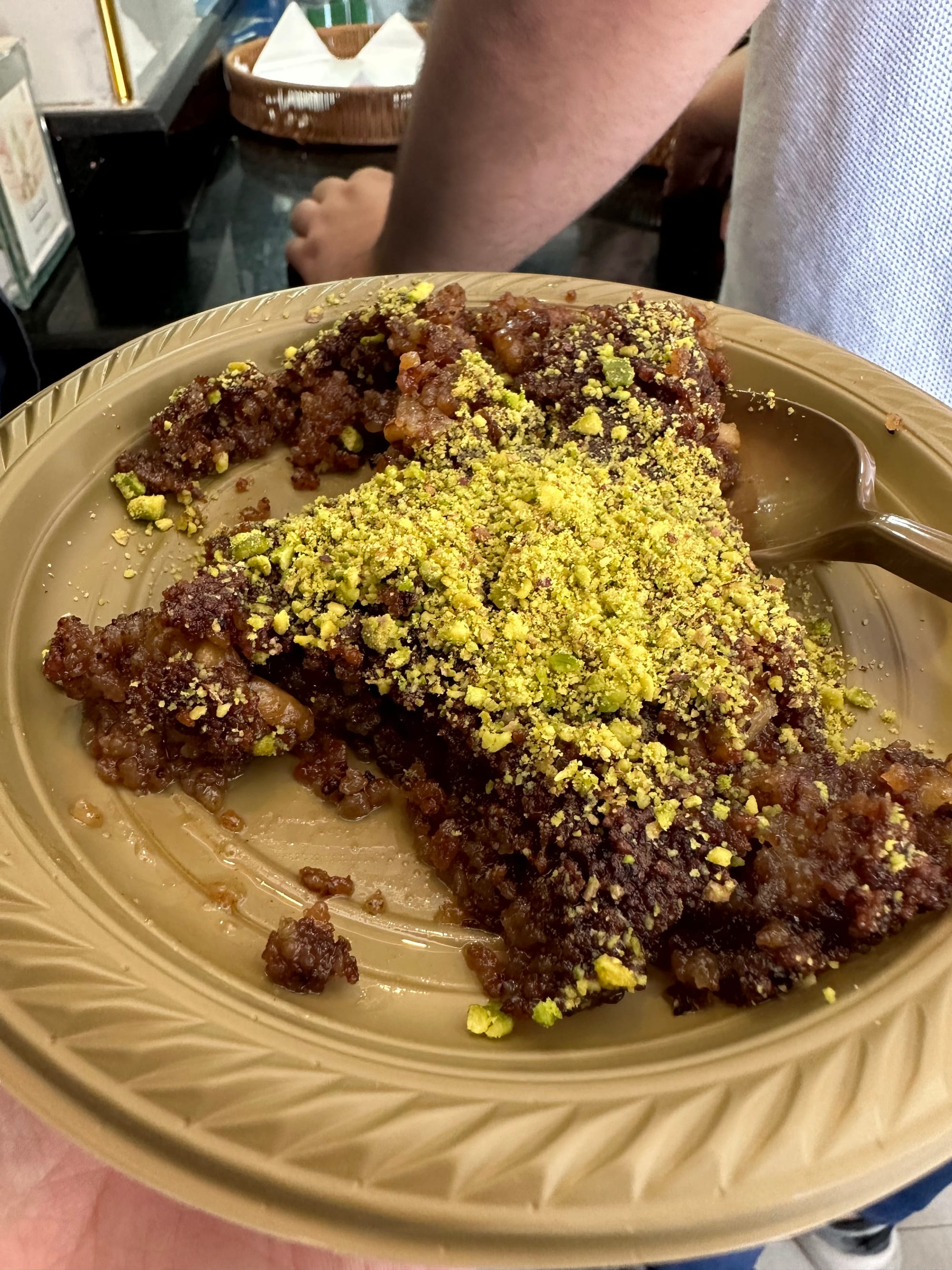
In a futile attempt to quiet my mind, I began researching Gazan knafeh so that I could make an attempt at baking it at home. My naïve hope for a temporary distraction was shattered instantly. While researching the Saqallah family's recipe, I learned Israel brutally murdered 30 to 40 members of the Saqallah family in the early weeks of this genocide. Everyone who was in the family home was killed in an Israeli airstrike, leaving a horrific scene with "body parts flung on the ground."
An entire family summarily executed; another unspeakably horrific crime perpetrated by the Israeli government, among many, many more.
I don't even have the words to express the immense rage and anger that I felt when I stumbled on this while simply researching a dessert recipe.
Who knows how many family recipes, local delicacies, and tiny aspects of Gazan culture have already been lost forever in Israel's continued genocide and ethnic cleansing of Gaza?
As we watch these crimes against humanity streamed to us live on the internet, our "leaders" continue to support and embolden these actions by providing endless aid to the Israeli government with no strings attached. Why must an entire civilian population of millions be murdered, displaced, and have their culture erased? What greater purpose could this possibly serve?
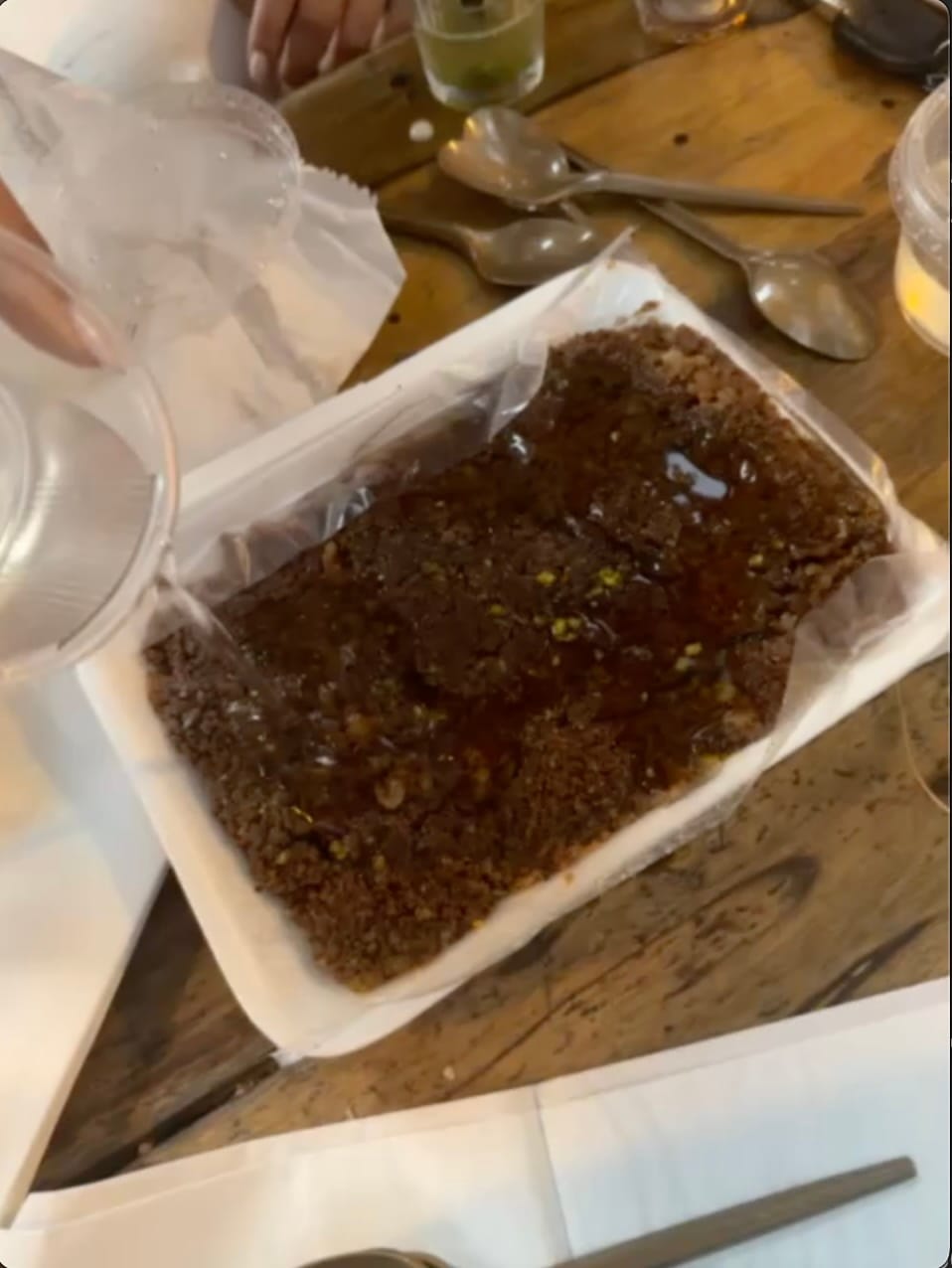
I am so incredibly thankful that the Saqallah family's recipe was recorded in The Gaza Kitchen. The simple act of recording a recipe is a tiny, but meaningful act of resistance against an oppressor with billions of dollars in military aid. Recording this recipe ensures it won't be lost and that it will continue to live on. It stands as a small, but powerful reminder that while the Israeli government can turn any brief moment of happiness in Gaza into a living nightmare, it will never succeed in its ultimate goal of deleting Gaza in its entirety.
The parts of Gaza in our photos, memories, stories, recipes, and hearts will live on forever and no one, not even the Israeli government, can ever take that away.
Special thanks to my friend Anam Raheem for her tireless effort reading and providing feedback on my posts. Read her work on her blog.
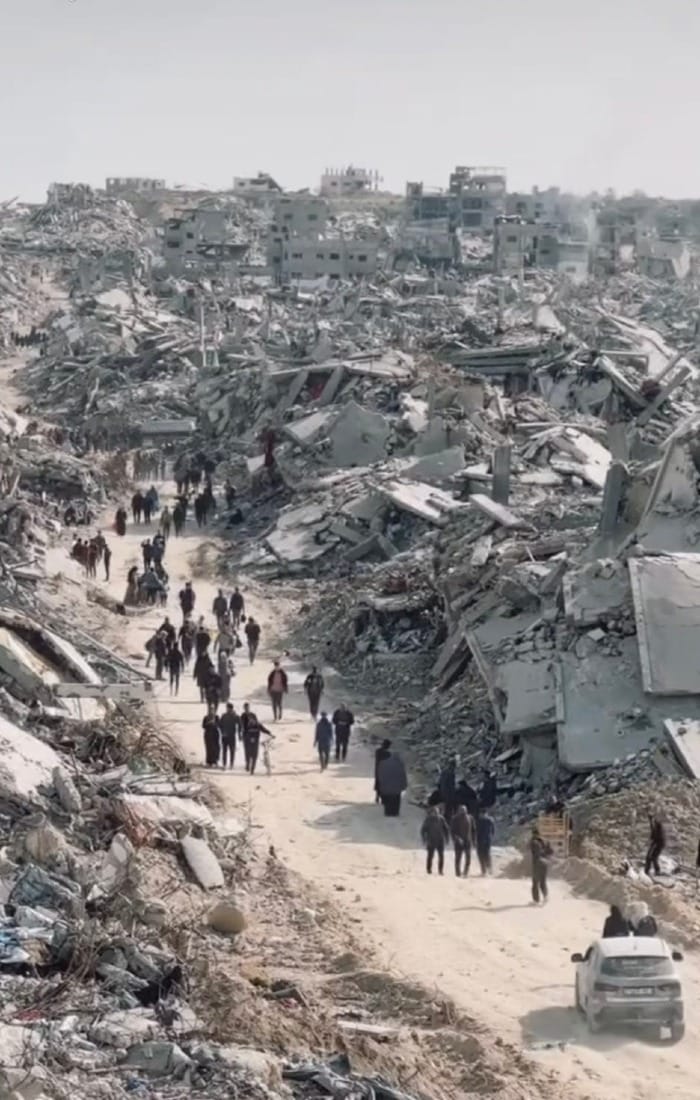
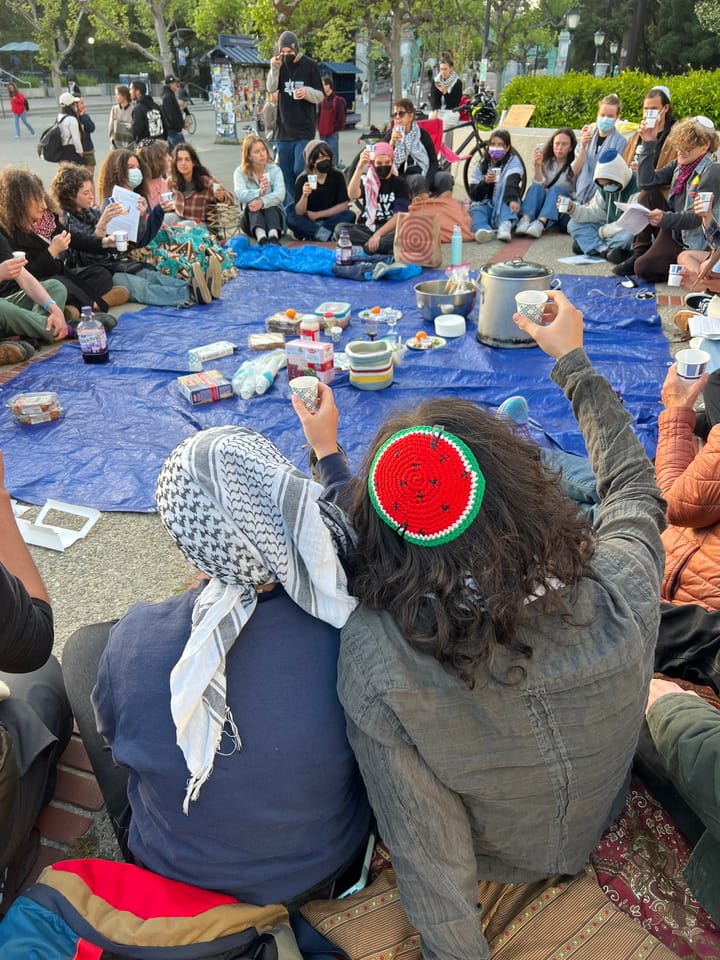
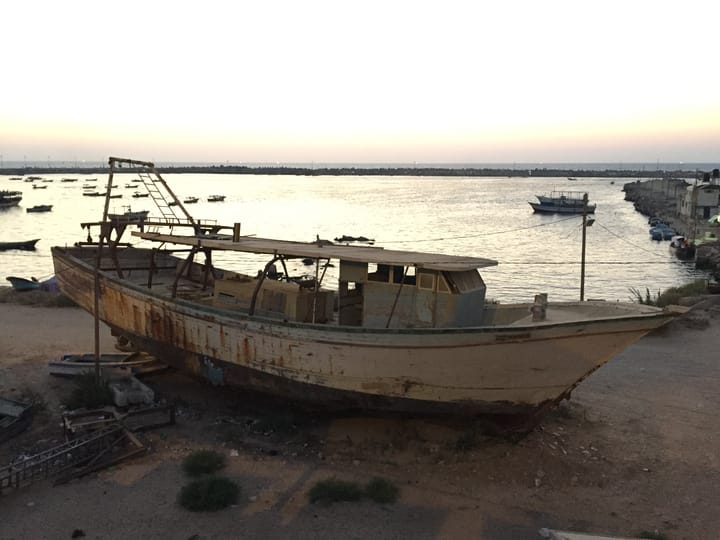
Comments ()